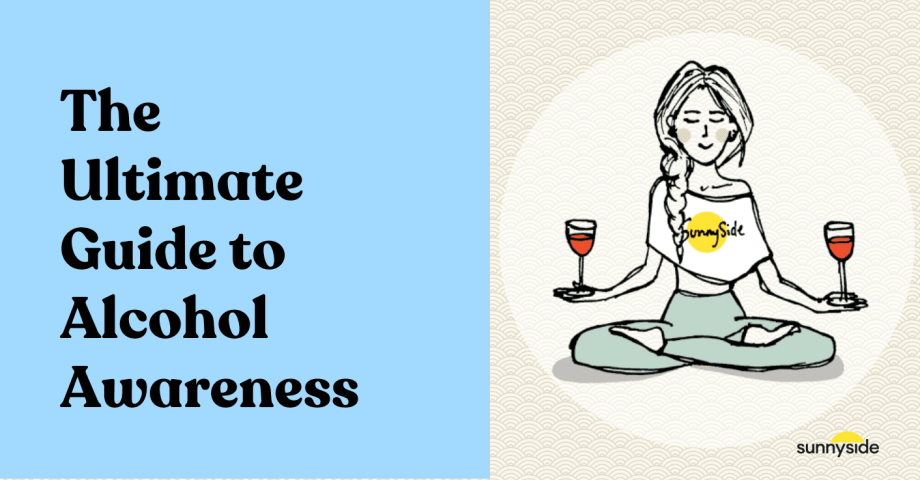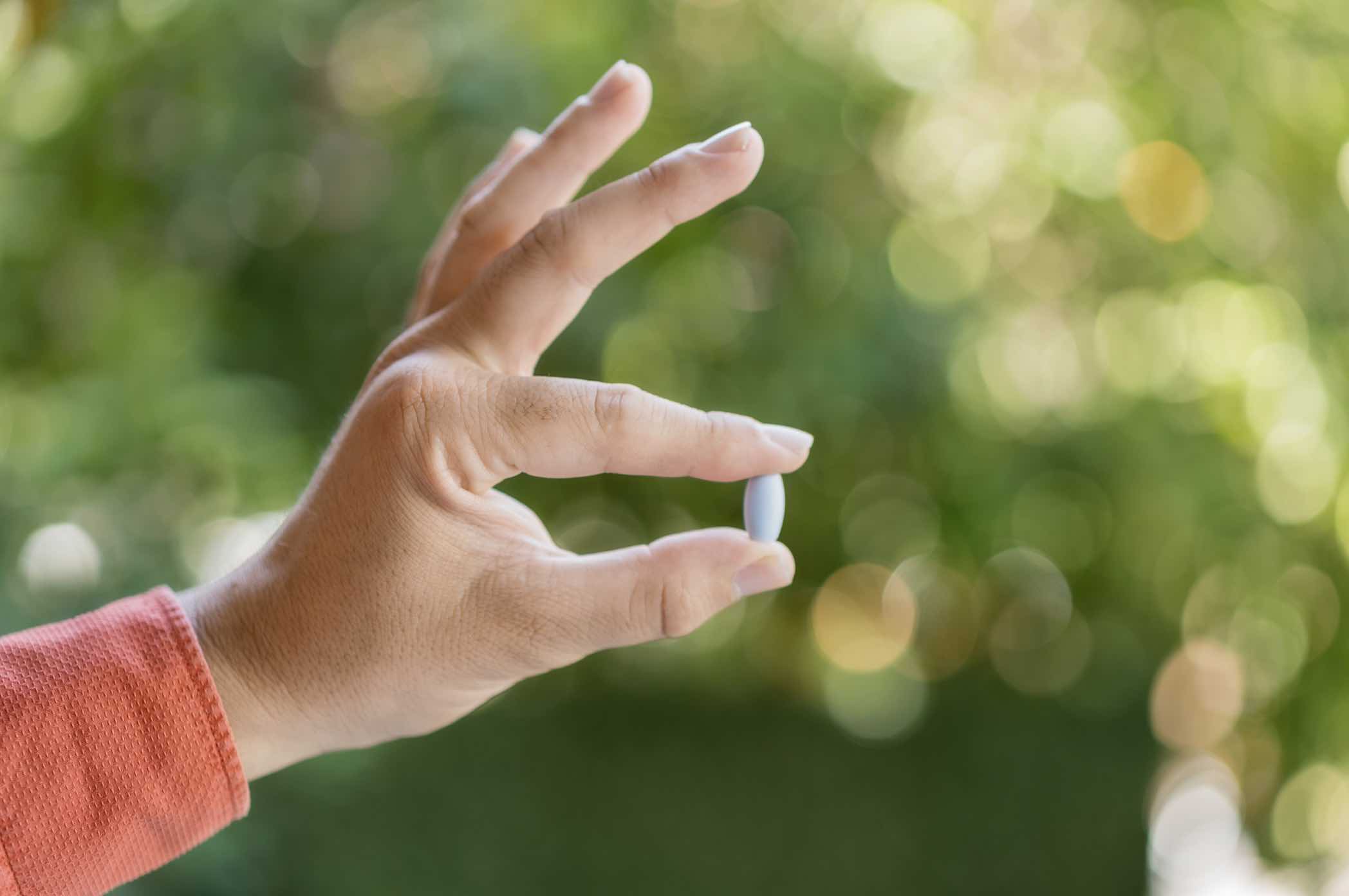Last Updated on January 11, 2024
What does your relationship with alcohol look like?
Do your drinking habits affect how productive you are at work? Maybe the money you spend on alcohol often exceeds your budget’s bandwidth. Or perhaps, you’ve been waking up groggy ever since your nighttime routine interlaced with alcohol.
Alcohol can impact different facets of our lives—from our decision-making and productivity to our finances, health, and relationship with loved ones.
Of course, there isn’t anything wrong with enjoying some alcohol to wind down or get you into a social mood. But for many of us, our drinking habits may play a larger role in our daily lives than we might realize.
And that’s where alcohol awareness comes into play. On a larger scale, alcohol awareness programs serve as educational opportunities to break the stigma surrounding alcoholism and remind the public about the health risks related to excessive drinking.
But at a more personal level, alcohol awareness can also be a valuable tool for just about any individual who drinks.
We’ll look into the role alcohol awareness plays in our day-to-day life and explore the different ways you can wield it as a powerful tool to build healthier and more mindful drinking practices.
What is Alcohol Awareness?
Some research suggests that over 60% of American adults consume alcohol. Because alcohol has become such an ingrained part of our culture, it’s easy to look past its impact on our daily lives. And without us realizing it, we may be sweeping drinking-related issues right under the carpet.
Alcohol awareness is the process of conscious and continual reflection on our drinking habits. Alcohol awareness doesn’t only bring possible drinking problems to light, but it also encourages us to be mindful of our alcohol consumption—even if we do not drink much or often.
Any level of drinking, in this sense, can affect our personal life, relationships, work, and health. Maybe the sip of wine you have before bed throws off your sleep cycle at night. Or perhaps, weekend night outs usually leave you with a nasty hangover on Monday mornings.
When we begin to assess the impact of our alcohol consumption on these different areas, we become aware of problematic habits. This opens up the space for us to start building more mindful drinking practices.
Alcohol Awareness Month at Sunnyside
Established by the National Council on Alcoholism and Drug Dependence, Alcohol awareness month occurs every April and constitutes a 30-day focus on alcoholism and how to seek help for this condition.
Alcohol awareness month, in general, serves to increase awareness about alcoholism and alcohol use disorder. The aim of this national event is to educate the public about the causes, symptoms, treatment, and prevention of alcohol addiction and to reduce the barriers to recovery for those experiencing it.
At Sunnyside, we recognize that alcohol use lies more so on a spectrum; complete abstinence sits on one end, while dangerous and excessive drinking sits on the other.
Rather than the all-or-nothing mindset (i.e., you’re either a heavy drinker or non-drinker), we acknowledge that many people who enjoy alcohol sit somewhere in the middle of the spectrum. Grey area drinking (drinking that lies in between moderate and dangerous drinking), mindful drinking, and a damp lifestyle are all examples of drinking practices that lie somewhere along the spectrum.
Of course, there are already guidelines established to help us better understand what’s classified as moderate drinking, heavy drinking, and binge drinking.
For instance, the CDC defines moderate drinking as having one or fewer standard drinks per day for women or two or fewer standard drinks per day for men. Meanwhile, heavy drinking refers to having 15 or more standard drinks per week for men or 8 or more standard drinks per week for women.
And according to the CDC, binge drinking usually corresponds to having 5 or more drinks in a single sitting for men or 4 or more drinks in a single sitting for women.
At Sunnyside, we keep these guidelines in mind while encouraging our community to dig a little deeper into their drinking habits. You do not need to be a heavy drinker or binge drinker for alcohol to have some sort of an impact on a certain area of your life, like your sleep or productivity.
During alcohol awareness month, we take the opportunity to reflect proactively on the outcomes of our drinking habits. This encourages us to correct unhealthy drinking patterns and improve our relationship with alcohol through more mindful practices.
Some questions to ask yourself about your drinking habits include the following:
- Does my drinking make it harder for me to perform my best at work or school?
- Have friends or family members shown concern about how much I drink?
- Do I feel moody, irritable, or tired the morning after I drink?
- Do I constantly have to deal with headaches, hangovers, or other physical side effects from drinking?
- Do I have trouble stopping after having one or two drinks?
- What are common triggers that cause me to drink? Is it stress or peer pressure?
- Do I have to hide my drinking habits from friends or family?
The proactive and consistent act of reflection allows us to build strategies to help us take control of our drinking urges.
April Alcohol Awareness Month 30-day No Alcohol Challenge
In a survey conducted after Sunnyside’s Dry(ish) January participants, many people experienced numerous improvements in their overall health. We asked over 25,000 participants to share the benefits experienced after completing their challenge. Here’s what they said:
- 83% experienced fewer binge drinking days
- 80% felt a sense of accomplishment
- 78% gained more control over their drinking
- 73% saved money
- 64% experienced more energy and focus
- 63% slept better
- 62% experienced better overall health
- 60% improved their mental health
- 59% had a better mood overall
- 56% relied on alcohol less in social settings
- 54% improved their productivity
- 46% saw improved fitness habits
- 43% improved their eating habits and diet
- 35% experienced improved family and relationship dynamics
- 31% noticed better skin
- 29% lost weight
In many cases, those who opted into the Fully Dry challenge and stuck with not drinking for a full 31 days saw increased benefits overall. We wanted to help more people experience the benefits of an alcohol reset by offering accessible challenges for anyone looking to improve their relationship with alcohol. One way you can start to reset your relationship with alcohol is by joining this 30-day challenge. Learn more about the benefits of a 30-day alcohol reset, and sign up for the challenge here.
Why Should You Be Mindful of Your Alcohol Intake?
You might not be ready to give up drinking for good. But at the same time, you probably do not want to drink at a harmful level.
Rather than having an all-or-nothing mindset, you can consider practicing mindful drinking instead. Mindful drinking sits somewhere in the middle of the spectrum. This middle-ground approach empowers you to build healthier drinking habits without having to abstain entirely from alcohol.
Alcohol awareness and mindful drinking go hand-in-hand simply because mindful drinking encourages you to be continually aware of the impact of alcohol in your life and reflect on the reasons you imbibe.
Mindful drinking is tethered to a host of benefits, such as the following:
- Greater clarity and focus
- Better quality sleep at night
- Supports healthy weight management
- Healthier and more youthful-looking skin
- Lower blood pressure and other heart-healthy benefits
- Extra money saved
Keen to hop onto the mindful drinking bandwagon? We’ll explore how you can kickstart your mindful drinking journey in the section below!
How Can I Practice Alcohol Awareness and Mindful Drinking?
If you want to cut back on your alcohol intake, you’re not alone. A 2022 Sunnyside survey involving 500 members found that more than 60% of participants wanted to reduce the frequency of their drinking. Another top goal among participants was to reduce the intensity and quantity of their drinking.
Nurturing a healthy relationship with alcohol usually starts with proactively assessing our drinking habits, urges, and triggers. Doing so allows us to devise personalized strategies that help us cut back on our drinking and make better decisions.
Here are some of the best ways to start practicing mindfulness and self-awareness when you drink.
Define your goals.
Do you want to quit or cut back on alcohol? If you wish to reduce your alcohol intake, how much would you like to cut back on? Jot your current goals down.
Ensure they’re realistic. For instance, you might start by cutting your drinking days from three to two days a week. Aiming for small victories rather than going cold turkey at the get-go is usually more sustainable.
Set up an action plan and helpful boundaries.
Create a personalized action plan by identifying and targeting the areas of your life that are negatively impacted by alcohol. Then, set up drinking limits and boundaries to specify when you’re allowed to drink, how much you’re allowed to drink, what you can drink, or any non-drinking days.
For example, if having alcohol before bed ruins your sleep, you might set up a cutoff time for drinking that’s at least 4-6 hours before your bedtime.
Maybe Sunday night-outs usually leave you completely under the weather and battling nasty hangovers on Monday mornings. In this case, you might come up with a pre-set drinking limit and track your drinking throughout the night so you don’t consume more than you can handle.
Track your drinking and progress.
One of the best ways to practice mindful drinking is to keep tabs on how much and when you drink.
There are plenty of drink-tracking tools that can make this process easy and convenient. The Sunnyside app is a mindful drinking app that provides tools and daily reminders that help you keep track of your alcohol consumption and drinking habits.
Identify personal triggers and manage them.
The 2022 Sunnyside survey found that some of the top reasons for drinking were to decompress after a long day and cope with stress. Many participants also drink out of habit, while a smaller group enjoy alcohol due to boredom.
Reflect on what invokes your urge to imbibe. Is it that fancy restaurant bar or a group of friends who can’t take “no” as an answer? Maybe alcohol helps you temporarily escape your stress and problems at work.
Once you have pinpointed your triggers, devise strategies to minimize their effect. Here are some examples of what you can do:
- Choose restaurants or places that do not serve alcohol.
- Surround yourself with friends who respect your goals and limits.
- Find alternative ways to decompress and release stress.
- Prioritize self-care and make time for activities you enjoy.
- Pursue new hobbies or learn new skills to fill up your free time.
- Plan to leave early from events that serve alcohol.
- Pass on any alcohol at home to friends or family (out of sight, and hopefully, out of mind!).
Gain the upper edge with these mindful drinking tips.
When drinking during social events or night out with friends, there are certain strategies you can implement to help you pace yourself throughout the night and reduce the amount of alcohol you consume.
Here are some of the best mindful drinking tips to try:
- Alternate between boozy drinks and non-alcoholic beverages (preferably plain water).
- Ask for low-alcohol alternatives or half shots.
- Enjoy a hearty meal before hitting the bar.
- Focus on what you stand to gain rather than what you’re “missing out on.”
- Hydrate well during the night and after the drinking session.
Seek professional help.
If drinking takes a significant toll on your health, mental wellness, productivity, and relationships, it’s best to seek advice. This can be daunting, without a doubt. But enlisting the help of a well-trained professional can make all the difference.
You can contact a doctor or an alcohol rehab or treatment center for professional help. Alternatively, you may seek support and resources from organizations such as SMART Recovery™, Al-Anon Family Groups, or Alcoholics Anonymous. Alcohol counseling by a trained counselor may also provide the support and advice you need to take control of your drinking.
This doesn’t have to be a journey you walk out alone.
Don’t let setbacks or failures define your future.
Cutting back on alcohol can be challenging. So, don’t be discouraged if you drink more than you initially planned to.
Be patient with your progress, and celebrate all your small wins and achievements. By making small changes to how you drink alcohol, you can build life-changing habits that will last a lifetime.
The Sunnyside Solution
The Sunnyside mindful drinking app encourages users to reflect on the impact of alcohol on their daily living and incorporate proven habit-change techniques to build a healthier relationship with alcohol.
The app provides drink-tracking tools, daily accountability messages and reminders, access to real-life coaches, and weekly action plans personalized based on your goals!
In the first 30 days, most Sunnyside members are able to cut back on their alcohol consumption by about 30%. This also equates to ~1,500 empty calories avoided and an extra $50 saved. Members have also reported better sleep, less anxiety, and feeling more present with their loved ones.
Ready to embark on your mindful drinking journey? Sign up for a 15-day free trial of Sunnyside now.
References
[1] https://www.cdc.gov/nchs/products/databriefs/db374.htm
[2] https://www.cdc.gov/alcohol/faqs.htm
[3] https://www.ncbi.nlm.nih.gov/pmc/articles/PMC5821259/



